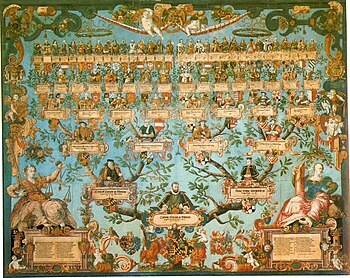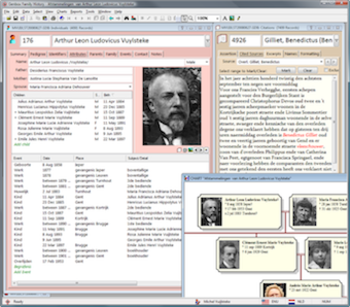What’s in a name? For anyone, a name defines who a person is. It is how one is addressed, how one signs, and the central feature that differentiates one from the other person. To the family history searcher, one’s name is a concrete marker that tells of the place where one comes from, a bit of history across time.
Names are important because it points to the general direction of the origins of the owners. Constructing a family tree becomes a tad easier because now it has a place to start – the family name.
A broad understanding of the origins, characteristics, and nature of names and name-giving is needed to undertake the search for your family history.
History of names
Until about a thousand years ago, people got by with just one name. And that was all one actually needed in those times where only a few ventured more than a few miles away from their homes. Even members of the royalty did not complain about having only one name each.
Later, as the population grew, people began the practice of further distinguishing a person from his friends and neighbors. “Paul the son of Robert” is called such because he is different from “Paul the farmer”. “John the smith” is called to distinguish him from “John the son of Thomas”. Around the year 1500, most surnames (the affiliation to the first name) became inherited and the practice is thankfully still used today.
For the people who come from Europe, most of their surnames drew meanings from their occupations, their father’s name, the place where they came from, or some descriptive words.
Names from occupations
Someone named MILLER essentially worked in a place where they ground grains to flour. BISHOP could be somebody working for the Bishop, and CARTER could be a maker or a driver of carts. Today, however, it is hard to accurately pinpoint names and their meanings because of changes in pronunciation or spelling.
Names from the fathers
Different countries have different variations on how the father’s name is inherited by the sons. The Irish “O”, the Gaelic “Mac”, the Norman “Fitz” are some of them. Examples are Johnson (the son of John), MacDonald (the son of Donald), Fitzgerald (the son of Gerald), and O’Connor (the son of Connor).
Names from places
Ancient people usually named newcomers with the name of the place where they came from. A guy who came from the east had EASTWOOD for a surname. CHURCHILL came from a place near a church on a hill. BROOKS is someone who lived near a creek or brook.
Nicknames
Sometime in the Middle Ages, people created pet names for their neighbors and friends based on personality or looks. These names evolved and later became surnames. Examples are Michael ARMSTRONG, John GOODMAN, and Peter WHITE.
Wrong spelling
It should not surprise a family historian going over old records to find errors in spelling and other inconsistencies in the names. Such problems certainly make the job of a family historian difficult, but not impossible.
There were many reasons for these problems. First, spellings were not standardized before. Anyone could spell their names every which way they wanted or how they heard them.
Sometimes, the problem was in pronunciation. Or it could be in the handwriting where the ornate old style had some different letters looking the same. (Capital letters L and S used to be written the same way and the old writing of letters A, O and U were almost identical.)
Importance of names
Surnames are usually given more attention because it is inherited. Even if it may be altered and corrupted in many ways through the passage of time, some original form is retained somehow.
Given names are also important in a way that they were given intentionally by the parents and represent their special thoughts and feelings for the individual. While they may not have the same weight of attention given to surnames, they still merit careful study because they can have in them valuable intimations about your family history.






